Dear Superintendent Harris:
On behalf of the Crypto Council for Innovation (“CCI”), we respectfully submit this letter in response to the New York Department of Financial Services’ (“DFS” or the “Department”) proposed updates to guidance regarding the listing of virtual currency.
CCI is a global alliance of industry leaders in the digital asset and Web3 sectors that serves to educate consumers and policymakers and advocate for policy that spurs responsible innovation. We use an evidence-based approach to support governments worldwide that are shaping and encouraging inclusive regulation of this innovative technology.
DFS enacted the nation’s first comprehensive regulatory regime at the state level for digital assets (e.g., the BitLicense and limited purpose trust charter frameworks) in 2015. By continuing to improve on and evolve this framework to best keep pace with digital asset innovation, New York can safeguard consumers and facilitate responsible and inclusive innovation, while putting forward a blueprint for thoughtful regulation.
To this end, proper guidance on token listings is critical to ensuring a safe and sustainable marketplace for digital asset investors. It is critical that DFS’ revised standards on virtual currency listings provide the industry with enhanced best practices and clarity on regulatory expectations regarding how to assess legal, reputational, and market risks during the coin listing process. Additional clarity on expectations for token delistings will also help to ensure stability when digital assets are removed from the marketplace. As DFS considers revising its guidance in this regard, we encourage the Department to provide the industry with additional clarity on several definitions and thresholds, as well as its justification for updating these requirements. DFS should also work to refine certain compliance obligations, which could be especially problematic in the event of adverse market conditions. The following specific recommendations can ensure that the revised Guidance enhances clarity, facilitates compliance, safeguards consumers, and supports market integrity:
- DFS should clarify the “circulating supply” requirement for self-certifying tokens. The guidance provides that, “[A] VC Entity cannot self-certify any coin in which the circulating supply is less than 35% of its total supply.” It further states that, “[f]or purposes of this Guidance, ‘circulating supply’ refers to the number of coins that are publicly available in the market and are not subject to lock-up or similar vesting periods. ‘Total supply’ refers to the total number of coins and includes all coins that are locked or held in reserve and are not publicly available in the market.” Liquidity is essential to the proper functioning of any healthy market. Without sufficient liquidity, market transactions are prone to dysfunction or failure to execute. However, it is unclear what the expectations and requirements are in terms of actually calculating the circulating supply (e.g., how should VC Entities account for tokens which have yet to be minted?).
- DFS should provide additional clarity on the definition of an exchange token. It is unclear if this definition would apply to governance tokens. By creating a novel way to allow for decentralized governance on the internet, governance tokens are often used to facilitate collective decision making by granting the holder the right to vote on protocol development. Specifically, DFS should further clarify the instances when an exchange token may provide “benefits on a cryptocurrency exchange.”
- DFS should outline criteria for adding tokens to the Greenlist. In the recently announced General Framework for Greenlisted Tokens, DFS outlines vague principles, which will govern its approach to adding tokens to the Greenlist. We encourage DFS to provide specific criteria for the industry in this regard, including further clarity on what constitutes a “historic record consistent with safety and soundness” and a threshold for “broad marketplace adoption.” Previously, DFS took into consideration whether a token had been listed on at least three exchanges when making determinations on greenlisting tokens, and it is unclear whether this marker will remain pertinent for the approval process. It is critical for DFS to continue to provide this type of specificity to allow for licensed entities to meet the guidance’s requirements.
- DFS should shorten the notification period for delisting tokens. The updated guidance would require VC entities to provide customers with written notice of decisions to delist tokens and elements related to executing a delisting event at least thirty days in advance. The guidance also requires VC entities to inform DFS in writing of decisions to delist tokens ten days prior to notifying customers. Forty days is an especially lengthy period of time to withhold these determinations from public markets. For example, there may be circumstances where a VC entity wants to delist an asset sooner to best protect consumers. DFS should shorten the requirement to fifteen days and include provisions for emergency situations which would require more immediate token delisting.
- DFS should provide more details addressing what constitutes a “material change” for purposes of this guidance. The guidance requires that a VC entity not make any material change or revision to either a coin-listing or coin-delisting policy without the prior, written approval of DFS. CCI would recommend that DFS provide further clarity as to what constitutes a “material change” to make clear when a notification requirement is triggered.
- DFS should specify the reasons for Guidance revisions. As a general matter, DFS should clarify its proposed justification for updating its Guidance regarding the listing and delisting of virtual currencies as well as the new general framework for adding tokens to the Department’s Greenlist. Understanding the rationale for the revisions–including specific harms it is seeking to mitigate–can improve industry’s ability to tailor its operations to meet regulatory objectives.
Thank you for your time and consideration of these recommendations. Since 2015, New York has led when it comes to comprehensive state-based digital asset regulation. As the digital asset class and technology continue to evolve and new use cases are established, New York can benefit from additional enhancements to the existing DFS framework. As additional enhancements are considered, it is critical to provide the digital asset industry with clarity and specificity so that licensed entities can help DFS meet its regulatory objectives. CCI looks forward to continuing to work with you on these important issues.
Sincerely,
Sheila Warren and Ji Kim
- As a general matter, given the rapid pace of innovation in this industry (and the need for regulatory certainty among DFS licensed entities), we would further encourage DFS to provide additional guidance as to (i) what constitutes a material change (whether for purposes of the guidance or generally), (ii) how notifications should be communicated to the Department, and (iii) a projected timeline for DFS review.




